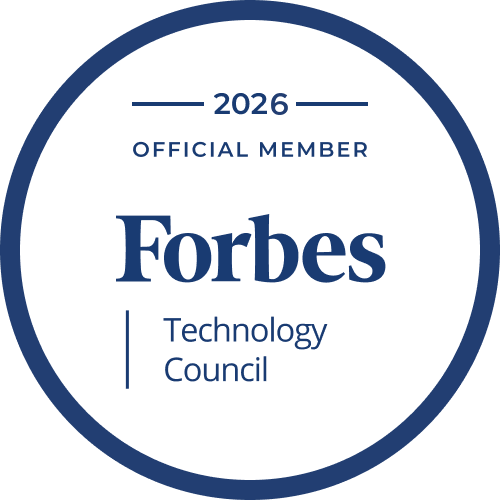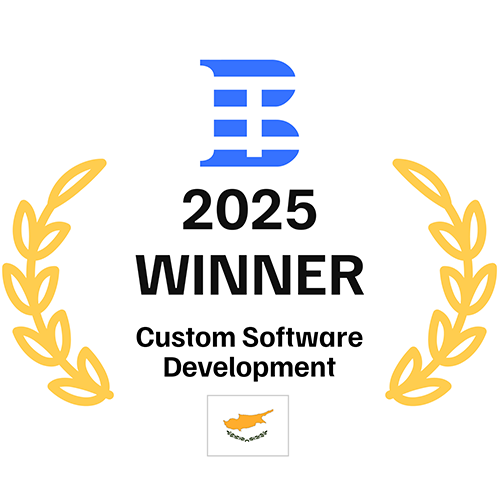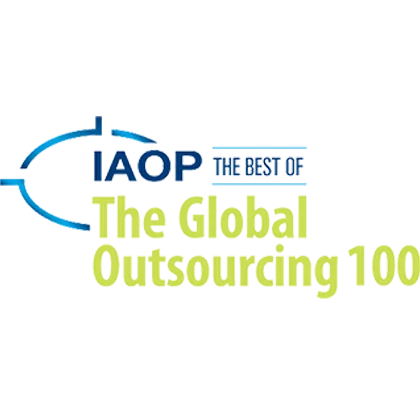
Programs, and Platforms, Gap Inc.

Spinview


Lampada Digital Solutions

Nanopixel

of Owiwi
Program-Ace provides expert business consulting and advisory services to align your strategies with the latest technologies, streamline operations, and uncover growth opportunities. Whether you need guidance on off-the-shelf third-party solutions, custom-developed solutions, or digital transformation roadmaps, we deliver tailored strategies to optimize performance and drive innovation.
Our software development consulting services address challenges across industries, offering end-to-end support - from solution discovery and technology advising to quality control and security assessment. With a focus on efficiency, profitability, and market relevance, we equip businesses with the tools and insights needed to thrive in a rapidly evolving global market.
Build a smarter future for your business with Program-Ace's expertise
We prioritize understanding your unique challenges and goals and delivering customized strategies and solutions that align perfectly with your business objectives.
We provide comprehensive support from initial consultation to post-implementation optimization, ensuring seamless integration and long-term success.
Our structured approach minimizes costly delays, reduces resource waste, and ensures optimal ROI, saving both time and money.
Our services focus on creating systems that grow with your business, providing flexibility for evolving demands while maintaining high performance.








Program-Ace offers business consulting and business analysis solutions tailored to an extensive range of industries. Each consulting service focuses on the unique needs and goals of clients, ensuring that every project benefits from our expertise. Our IT consultancy services are designed to enhance business operations across diverse sectors, with tailored approaches to solve industry-specific challenges effectively.
Each industry benefits from our extensive experience, with software consulting tailored to solve specific challenges. For example, in the military sector, simulation technologies help train personnel under realistic scenarios. Similarly, manufacturing consulting involves adopting IoT-enabled tools to monitor and manage industrial processes.
The telecom industry utilizes IT consultancy services to develop scalable communication platforms and improve customer experiences. Healthcare projects prioritize secure software solutions, ensuring compliance with global standards while improving patient outcomes.
Retail businesses gain actionable insights through business analysis, leading to better inventory management and the integration of AI-driven customer analytics. Marketing and advertising benefit from tools that enable precision-targeted campaigns and robust performance tracking systems.
Fintech and insurtech clients leverage software consulting to design intuitive platforms for digital banking, fraud detection, and claims processing. The energy sector relies on consulting expertise to transition toward greener technologies and digitalized infrastructure.
Program-Ace also supports emerging industries by applying IT consultancy services to address their unique requirements. Custom software solutions form the backbone of every project, ensuring a precise fit for organizational needs. Our experience across diverse industries ensures that each consulting service is grounded in practical insights and measurable results. The emphasis remains on aligning strategies with business goals and delivering scalable, future-proof solutions.
To explore how our business analysis and consulting services can address your specific needs, contact us today.
Program-Ace provides comprehensive support for both off-the-shelf and custom software solutions, ensuring businesses achieve their objectives with tailored approaches. Whether you require ready-made tools or bespoke applications, our consulting services guide you toward the most effective path based on your unique operational needs.
Off-the-shelf solutions often serve as a quick and cost-efficient way to meet specific business challenges. Program-Ace offers expert business consulting to evaluate your requirements and recommend pre-built software that aligns with your goals. By analyzing market options, we help clients identify the right solutions to integrate seamlessly into their existing systems.
Custom software development caters to organizations that demand tailored functionalities or features beyond standard tools. Our team delivers solutions designed from the ground up, ensuring they address complex needs while offering scalability and long-term adaptability. IT consulting is crucial in defining the scope of such projects, optimizing resources, and achieving the desired outcomes.
Business analysis forms the backbone of every project, whether implementing pre-built tools or creating tailored software. Detailed assessments ensure a clear understanding of challenges, goals, and constraints, setting the foundation for a successful outcome. Software consulting optimizes performance and addresses potential bottlenecks during the design or integration process.
Our consulting services extend beyond initial implementation, providing ongoing support and maintenance to ensure systems remain efficient over time. Pre-built tools often require configuration, while custom software benefits from periodic updates and enhancements, making both options highly adaptable.
IT consultancy services empower clients to make informed decisions by comparing the benefits and limitations of off-the-shelf versus custom solutions. For example, small businesses with limited budgets may benefit from ready-made tools, while larger enterprises often require tailored applications to address complex workflows or industry-specific regulations.
Program-Ace excels in bridging the gap between pre-built solutions and custom software, ensuring businesses achieve their goals without compromise. If you are ready to explore tailored strategies that drive results, let’s discuss how we can contribute to your success. Reach out to Program-Ace for a personalized consultation today.
Program-Ace approaches technology recommendations with a structured process designed to meet each client’s specific requirements. We craft solutions that align with operational goals and deliver tangible results by leveraging expertise in business consulting, business analysis, and IT consultancy services.
Business analysis underpins every recommendation, identifying key areas where technology can add value. Data-driven insights allow us to evaluate multiple options, ensuring that the most suitable solution is selected. Our approach includes detailed evaluations of functionality, scalability, and integration potential for current and future operations.
Key steps in our process include:
IT consulting bridges the gap between your goals and the recommended solutions, providing insights into how each option impacts workflows and system architecture. Our recommendations prioritize technologies that enhance productivity, streamline operations, and support scalability.
In cases where off-the-shelf solutions may need to be improved, software consulting ensures that custom solutions are tailored to meet complex requirements. By collaborating closely with stakeholders, we define clear specifications, mitigate risks, and align development efforts with business priorities.
Vendor neutrality secures unbiased recommendations. Program-Ace evaluates options solely on their ability to meet operational goals without being tied to specific providers.
Practical testing and prototyping further validate recommendations. Piloting proposed solutions in controlled environments allows for adjustments based on real-world scenarios, ensuring smooth implementation.
Ongoing support is an integral part of our IT consultancy services. Post-implementation reviews and updates guarantee that technologies continue to meet evolving needs. We help clients maintain an optimized operational environment by addressing feedback and monitoring performance.
Every recommendation is designed to focus on measurable results, such as improved efficiency, cost reduction, and enhanced user experience. Consulting services aim to align technologies with immediate objectives and future organizational goals, ensuring long-term benefits.
Program-Ace provides actionable insights rooted in expertise and precision for organizations seeking tailored strategies that truly address their operational challenges. To explore how our solutions can drive your success, get in touch with us to begin a consultation.
The duration of a business analysis or consulting project depends on its complexity, scope, and the client's objectives. Each project is unique, requiring a customized timeline based on factors such as industry requirements, stakeholder involvement, and the depth of analysis or consulting needed.
Smaller projects, such as evaluating specific workflows or recommending off-the-shelf solutions, can typically be completed within two to four weeks. These engagements often involve concise discovery phases, limited stakeholder input, and clearly defined deliverables. Short-term efforts produce actionable insights with minimal disruption to daily operations by focusing on targeted objectives.
More comprehensive initiatives, such as end-to-end business analysis or IT consulting projects, usually span several months. These engagements require detailed assessments of workflows, system integrations, and technological infrastructure. Longer timelines accommodate thorough exploration of all variables, including identifying bottlenecks, proposing scalable solutions, and addressing cross-departmental dependencies.
Several factors influence project timelines, such as:
Business consulting projects involving software consulting or IT consultancy services often require iterative phases. Initial discovery involves stakeholder meetings and data collection to identify objectives and challenges. Subsequent analysis examines workflows, resource allocation, and technological solutions. Finally, recommendations are tailored to align with strategic goals, accompanied by a roadmap for implementation.
The industry and the specific needs of the organization also shape the timeline. Manufacturing clients may need in-depth supply chain-process analyses, while healthcare organizations often require detailed compliance reviews alongside workflow optimization. Retail businesses typically seek insights into customer behavior and inventory management, necessitating varied timelines based on the depth of analysis.
Adjustments to timelines occur when unforeseen challenges arise or when the scope of the project evolves. Flexible planning allows consulting services to adapt to shifting priorities or emerging requirements without compromising the quality of deliverables.
Clients are kept informed throughout every stage, with progress reports and milestone updates. Regular communication fosters transparency, enabling stakeholders to track progress and provide timely feedback.
To plan your next business analysis or consulting project, connect with us at Program-Ace to start building a tailored strategy today.
Program-Ace provides comprehensive assistance in selecting and managing solution vendors, ensuring your project benefits from the most effective and compatible partnerships. Our expertise spans business consulting, business analysis, and IT consultancy services, allowing us to guide clients through the complexities of vendor evaluation, negotiation, and management.
The selection process begins with an in-depth understanding of your project’s goals, operational requirements, and existing systems. By conducting a thorough business analysis, we identify the exact criteria vendors must meet to deliver value. Such an approach ensures that all recommendations align with your strategic objectives and project scope.
Vendor research is a critical step, involving a detailed assessment of market offerings to identify potential candidates. Each option is evaluated based on technical capabilities, cost-effectiveness, scalability, and alignment with project requirements. Recommendations are based solely on their merit, ensuring objectivity throughout the process.
Key stages in vendor selection and management include:
Vendor negotiations are handled with a focus on securing favorable terms, ensuring both technical and financial aspects meet your expectations. Our IT consulting expertise ensures that all contractual obligations, including timelines and deliverables, are clearly defined to ensure clarity later in the project.
Project management support includes overseeing vendor collaboration, monitoring progress, and addressing any issues. Regular communication with vendors and stakeholders ensures that all parties remain aligned throughout the project lifecycle. Milestones are tracked to maintain schedules and achieve desired outcomes.
Our process accommodates various industries, tailoring recommendations and management practices to fit specific needs. For example, healthcare organizations often require vendors with expertise in regulatory compliance, while manufacturing projects may prioritize supply chain optimization tools.
For companies seeking structured guidance in vendor selection and management, Program-Ace delivers results grounded in expertise and precision. Contact us now to discuss how we can support your project and take the next step toward achieving your goals.
Program-Ace differentiates itself from other consulting providers through its expertise, tailored solutions, and commitment to delivering measurable results. Our business consulting, business analysis, IT consulting, and software consulting services provide clients with comprehensive, outcome-driven support.
Key aspects that set us apart:
Technical advantages:
Collaboration and communication:
Industry-specific expertise:
Post-implementation support:
Reach out to Program-Ace to discuss how our expertise can address your business challenges with practical and effective solutions.
Tell us more about your business needs to help us serve you better. The more detailed information will allow us to route your inquiry to the most appropriate person in our team.
By sending this form you agree to our Privacy Policy. The information you provide will be added to our CRM system for further communication.








